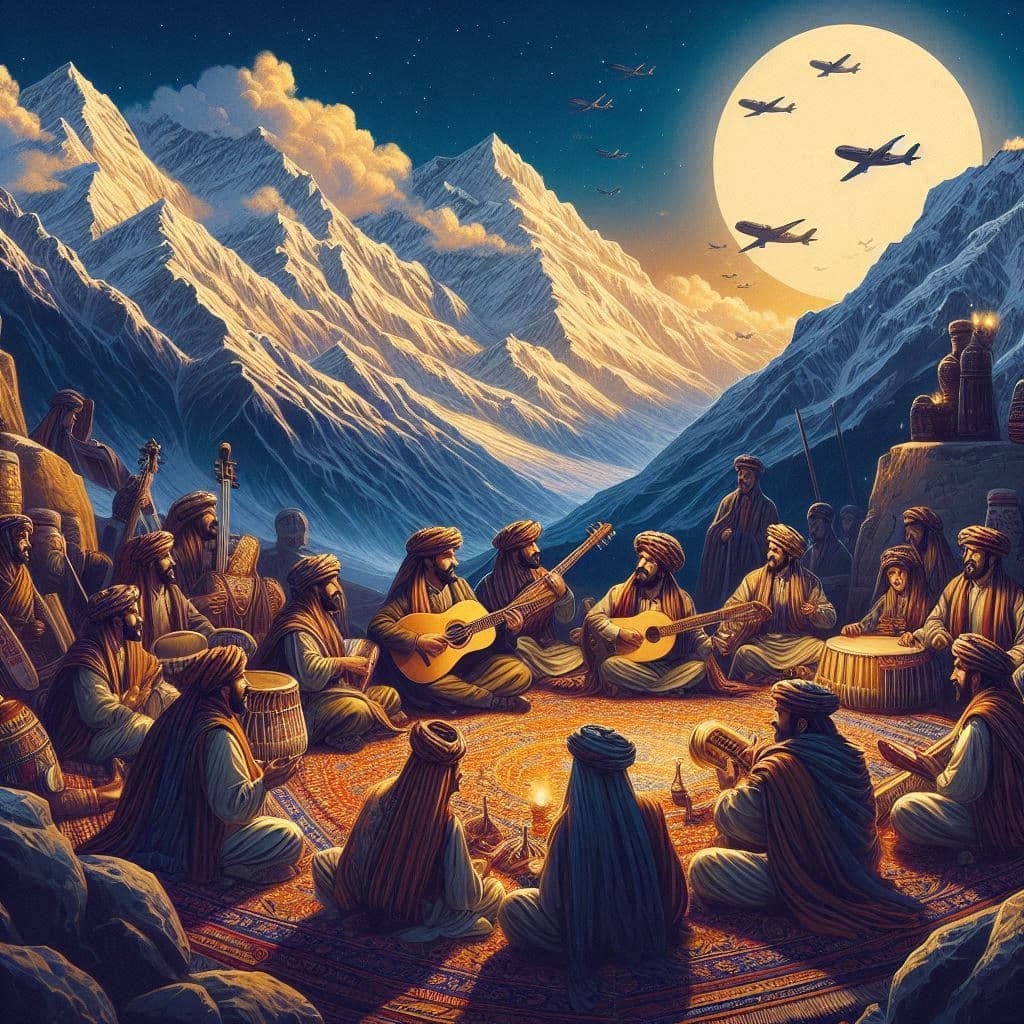
The Rich Musical Heritage of Pashtun Culture

Hasan Tariq
02 Apr 2022 - 02 Mins read
Pashtun culture boasts a vibrant and diverse musical tradition that reflects the history, emotions, and daily lives of the Pashtun people. The music of Pashtun culture is a harmonious blend of folk, classical, and contemporary styles, deeply rooted in the region's heritage and closely tied to its social customs and rituals.
Traditional Pashto Music
Traditional Pashto music is characterized by its soulful melodies and rhythmic beats. The Rabab, a string instrument, and the Mangey, a type of clay pot drum, are central to Pashto folk music. These instruments, often accompanied by the Harmonium and Tabla, create a sound that is both unique and enchanting.
One of the most popular forms of traditional Pashto music is Tappa, a two-line poetic form sung by both men and women. Tappa is known for its melancholic and emotional tone, expressing themes of love, longing, and the trials of life. Another popular form is Charbetta, a four-line stanza that is faster in tempo and often used to convey humor or social commentary.
Modern Influences and Fusion
In recent years, Pashto music has undergone a transformation, blending traditional sounds with modern elements to create a new genre of contemporary Pashto music. Artists like Gul Panra, Sardar Ali Takkar, and Nashenas have been instrumental in bringing Pashto music to a wider audience, experimenting with pop, rock, and electronic elements while staying true to their roots.
The fusion of traditional and modern music has not only revitalized Pashto music but also made it accessible to younger generations, both within and outside the Pashtun community. The use of digital platforms has further popularized Pashto music, allowing artists to reach a global audience.
Music and Social Identity
Music plays a significant role in the social identity of the Pashtun people. It is often performed at weddings, festivals, and other cultural gatherings, serving as a medium for storytelling and the preservation of traditions. Songs about historical events, folklore, and famous personalities are common, reinforcing a sense of pride and belonging.
“Music is the language of the soul, and Pashto music, with its rich melodies and powerful lyrics, speaks directly to the heart of every Pashtun.”
Hamid Gul



